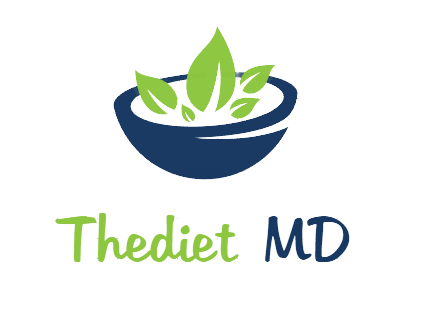You may have heard the widespread belief that eating mangoes with milk is harmful and even kills, right? But know that this story is nothing but a myth. This joint is relatively healthy and has many health benefits.
Among the several positive points of this combination are: the improvement of intestinal functioning, the strengthening of immunity, and even giving a little strength to lose weight healthily.
Table of Contents
After all, is mango with milk good or bad for your health?

Contrary to popular belief, eating mango with milk is good for health. It brings several benefits to the body since it is a mixture rich in nutrients, such as carbohydrates, good fats for the body and various proteins and essential amino acids.
The drink has a good portion of dietary fibre and minerals such as calcium, iron, sodium, magnesium and selenium, in addition to vitamins A, C, and E and complex B, such as B1, B6, B9 and B12.
Protect the vision
One of the main benefits of consuming mango mixed with milk is for eyesight. The mixture contains about 475 mg of the vitamin for every 240 cups.
Vitamin A is essential for forming the cells forming the retina, the conjunctiva and the cornea, which can lead to blindness if they do not function properly.
Furthermore, the body uses this nutrient to produce light-sensitive pigments inside the eyes and help vision in places with low light.
An essential addition is that this benefit is better used with whole milk, which has a more significant amount of fat since vitamin A is a fat-soluble component. In other words, it mixes better with food lipids.
Regulates bowel function
Another positive point of mango with milk is about intestinal functioning.
The dietary fibres found in mangoes favour the increase of fecal bolus, hydrate the intestines region and stimulate peristaltic movements, which expel feces.
On the other hand, milk is a source of essential bacteria for the intestinal flora, a set of protective microorganisms in the region.
All of this works together to help prevent problems such as intestinal gas, constipation and even diarrhea.
Good for bone and muscle health
The large amount of calcium (186 mg per cup) in the mixture makes it an excellent food for bones and muscles.
The calcium found in milk is easily absorbed; most of it can be used and is used in bone remineralization, which replaces the mineral lost naturally.
Milk is also rich in proteins and amino acids for bone and muscle health, like casein, which transports minerals through the blood; leucine, which synthesizes proteins that make up the muscle fibres; and lactoglobulin alpha, which stimulates calcium absorption from the intestine.
Mango also plays a vital role in this. The consumption of the fruit inhibits bone resorption, which weakens the bones, an effect that occurs thanks to the action of a substance called mangiferin, which is found in large quantities in the pulp.
Strengthens immunity
The immune system is the cells that defend the body against diseases. The action of mango vitamins A and C stimulates the production of these cells.
While milk, being a source of proteins such as immunoglobulins, alpha lactoglobulin, lactoferrin and lysozyme, regulates the release of these cells at any sign of health problems.
As a result of this joint action, the body can better defend itself against attacks caused by pathogens (disease-causing organisms).
Protects against chronic diseases
Together, these two ingredients act against chronic diseases, illnesses that extend for longer than six months, such as diabetes, high cholesterol, hypertension and even some types of cancer.
Fatty acids, proteins and amino acids in milk reduce the risk of developing cardiovascular disease and increase the insulin release (a hormone that metabolizes sugar) by the pancreas and minerals that regulate blood pressure.
Mango is rich in several antioxidants, which prevent the action of molecules that damage the cell structure and increase the risk of disease.
Among the main phytochemicals of the genus are vitamins C (ascorbic acid) and E (alpha-tocopherol), beta-carotene (precursor to vitamin A) and mangiferin.
It helps you lose weight with health.
Want another reason to add mango and milk to your menu? Well, know that the combination can help you lose those extra pounds deliciously and healthily.
This happens because of the fibres, which reduce hunger because they occupy a lot of space in the stomach and delay gastric emptying, and because of the mangiferin, which reduces the absorption of fats.
Milk has a similar action, as the proteins in it stimulate the release of hormones that increase the feeling of satiety while improving digestion.
To top it off, each 240 ml cup has just over 150 calories, making it a great post-workout snack option.
Delicious and healthy mango smoothie recipe
Did you see all these benefits and feel like trying them out? Then check out a super simple and delicious recipe for a smoothie that takes just two ingredients and is ready in less than 5 minutes!
You only need a very ripe mango and one glass of cold milk. The mango can be varied, but the more ripe, the sweeter it will be.
Mix the two ingredients to a blender, and it’s ready; it doesn’t need to strain or sweeten. To make it creamier, replace part of the milk with plain yogurt and add ice cubes.
Where did superstition come from?
The legend that mangoes consumed together with milk was wrong for one’s health arose in the era of slavery in Brazil and departed from enslavers. They invented this story so enslaved people would not consume cow’s milk, an expensive product destined for the noble family.
The enslaved people ate plentiful mangoes to relieve hunger, and, afraid of getting sick, they stopped stealing milk from the farms. Over time the story spread and became immensely popular.
However, it is being demystified, mainly because it is possible to find products based on mangoes with milk, such as juices and yogurts, on every market’s shelves.
My name is Ellie Lauderdale, MD and I am USA based professional Nutritionist .
I am a Registered Dietitian Nutritionist and board certified specialist in sports dietetics who is trained in integrative medicine. I have worked with hundreds of clients, from those suffering with chronic disease to professional and olympian athletes. My goal is to help optimize you from the inside so that you can feel, perform, and look your best on the outside.


